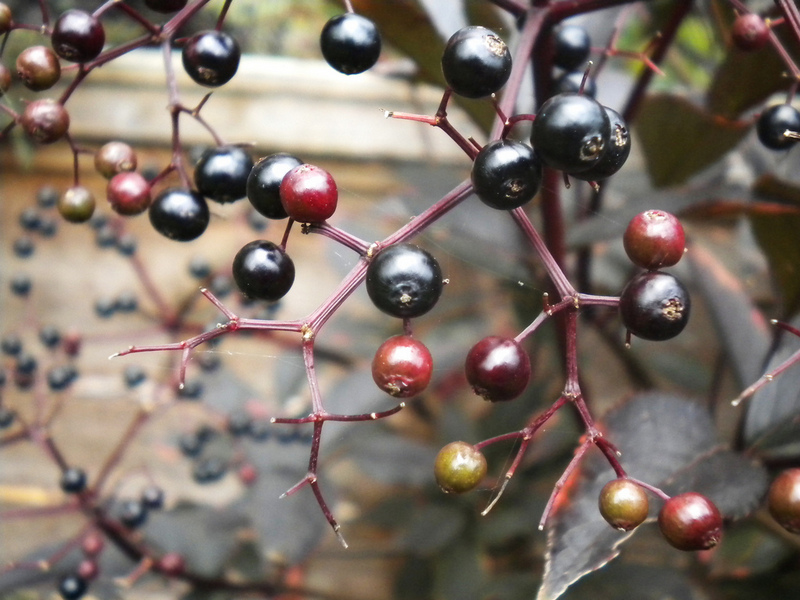
Top tips to boost your immunity this Autumn and Winter … with a little help from the Victorians
It’s estimated that on average we will catch two to four colds a year. That’s 233 colds during a lifetime, which is not so surprising when you consider that our immune system is under constant attack from modern day pollution, germs, viruses and stress. These impact on our body’s ability to stay strong against winter coughs and colds, and can leave us feeling pretty dreadful.
A good diet of natural foods, rich in antioxidants and healthy bug-busting nutrients can help to protect against bacteria and viruses, however research has shown that the modern Western dietary choices and changing present day food production methods have lead to a sharp decrease of these super nutrients being ingested into the body. In contrast, it’s surprising to know that during the Victorian era, despite infant mortality being significantly higher, generally life expectancy was not much lower than the present day. In addition, studies have shown that people alive in the Victorian age generally had stronger immune systems and better all-round health.1
One of the key factors to contribute to the Victorians’ highly robust immune systems was their consumption of the naturally occurring polysaccharides, 1-3, 1-6 Beta Glucans, which are found in the cell wall of fungi and yeasts. The Victorians loved to indulge and consume stoneground bread and unfiltered beer, which contain large amounts of yeast, plus fruits, vegetables and grains which were untreated with chemicals and so had plenty of natural fungi growing on the surface. This meant that unlike modern foods that are generally much more highly processed, the Victorians ate a diet extremely rich in these super nutrients.
Beta-glucans are believed to help improve the body’s resistance to infection by deceiving the body into thinking that it is under attack and stimulating the body’s immune response. This keeps the immune system primed and ready to defend itself against pathogens and foreign invaders.
Research has found that beta-glucans may help reduce the symptoms of the common cold, as well as the number of days people take off work. One study also found that those who took beta-glucans had 23% less upper respiratory infections.2 A further study found that by taking a daily supplement of beta-glucans, the severity of upper respiratory tract infection symptoms was reduced, in addition to the possibility of the body overreacting to otherwise harmless substances such as ragweed pollen.3,4
Unfortunately today we are less likely to experience the health benefits of beta-glucans in our natural day-to-day diet in the way that the Victorians would have. We are, however, able to include these missing super nutrients into our diet through supplements, such as Solgar Beta Glucans & Elderberry Immune Complex, which takes its immune supporting* inspiration from our Victorian ancestors, to help us get through times of stress and the Autumn and Winter months.
As well as beta-glucans, there are a number of additional nutrients that can help boost to help immune health during the autumn and winter months.
In recent years it has been suggested that low levels of vitamin D in winter increases susceptibility to flu, and the UK flu levels peak in February when our vitamin D levels are at the lowest. Our vitamin D levels dip during the autumn and winter months as we cannot manufacture it from the sun during this time, and so the UK government now recommends that everyone living in the UK should supplement with vitamin D from October to March. In a large study of 19,000 people, those who had low levels of vitamin D were 40% more likely to have had a respiratory infection.5
Elderberry berries have been used in traditional medicine for various immune related health issues. A recent study showed that supplementation of elderberry before the development of colds reduced the severity and duration of flu.6,7,8 One such study found that influenza symptoms decreased 48 hours following supplementation and lasted just 2-3 days in 90% of patients in comparison to 6 days in the placebo group.9
There are also lifestyle measures we can make to help boost immunity, such as reducing our sugar intake. One study found that consuming 100 grams of sugar significantly reduced the ability of white blood cells to destroy foreign particles and microorganisms for several hours.
Cutting back on alcoholic drinks, which are often high in sugar, may also be helpful, whilst one alcoholic drink will not impair the immune system, three or more drinks appear to have a marked detrimental effect. Excessive alcohol also depletes the body of minerals such as zinc, which play an important role in supporting immune function.
So rather than waiting until a cold or flu has taken hold this winter, why not take some simple steps to help ensure that your immune system is primed and ready to fight back.
*vitamin c and d, zinc and copper contribute to the normal function of the immune system.
References:
- Rowbotham J, Clayton P. An unsuitable and degraded diet? Part three: Victorian consumption patterns and their health benefits. J R Soc Med. 2008 Sep; 101(9):454-62.
- Stephanie G. Harger-Domitrovich, Joseph W. Domitrovich, Brent C. Ruby, Eects of an Immunomodulating Supplement on Upper Respiratory Tract Infection Symptoms in Wildland Firefighters. 2008. Montana Center for Work Physiology and Exercise Metabolism, University of Montana, Missoula MT
- Shawn Talbott, Julie Talbott, Don Cox. Beta-glucan Supplement Reduces Upper Respiratory Tract Infections and Improves Mood State in Healthy Stressed Subjects. Experimental Biology. Presented. 2010. April 24-28 Anaheim,California.
- Talbott SM et al. β-Glucan supplementation, allergy symptoms, and quality of life in self described ragweed allergysuerers. Food Sci Nutr. 2013 Jan; 1(1):90-101.
- Adit A. Ginde, MD, MPH; Jonathan M. Mansbach, MD; Carlos A. Camargo Jr, MD, DrPH. Association Between Serum 25-Hydroxyvitamin D Level and Upper Respiratory Tract Infection in the Third National Health and Nutrition Examination Survey. Archives Internal Medicine. 2009. 169(4) P. 384-390.
- Evelin Tiralongo, Shirley S. Wee, Rod A. Lea. Does elderberry (Sambucus nigra L.) benefit intercontinental air travelers. 2015. School of Pharmacy Griffith University, Gold Coast campus, Queensland 4222, Australia. Institute of Health and Biomedical Innovation.
- Zakay-Rones, Z.; Thom, E.; Wollan, T.; Wadstein, J. Randomized Study of the Efficacy and Safety of Oral Elderberry Extract in the Treatment of Influenza A and B Virus Infections. 2004. The Journal of International Medical Research. Volume 32, Number 2. pp. 132-140.
- Kong F. Pilot clinical study on a proprietary elderberry extract: efficacy in addressing influenza symptoms. Online J Phrmacol Pharmacokin 2009; 5:32-42.
- Zakay-Rones Z, Varsano N, Zlotnik M, et al. Inhibition of several strains of influenza virus in vitro and reduction of symptoms by an elderberry extract (Sambucus nigra L.) during an outbreak of influenza B Panama. J Altern Complement Med 1995; 1:361-369.




You must be logged in to post a comment Login